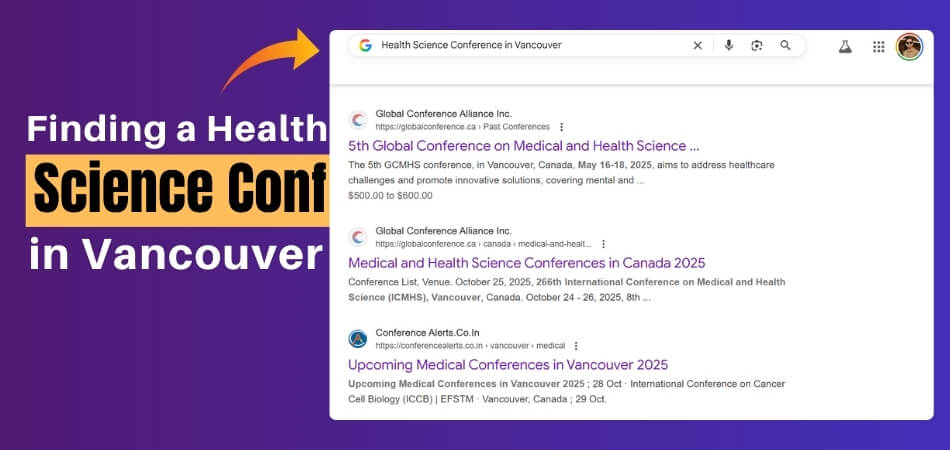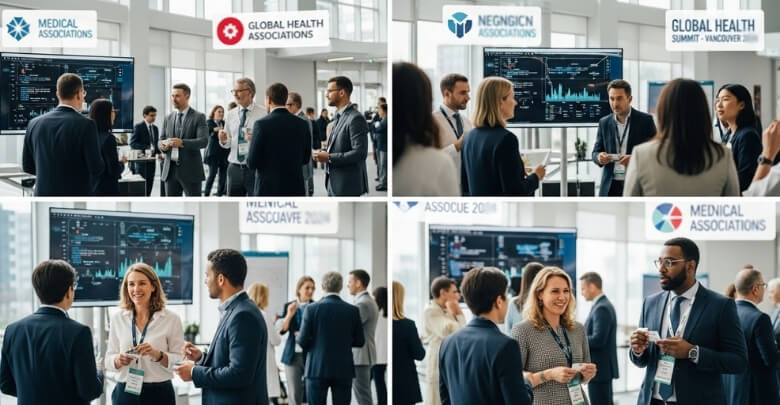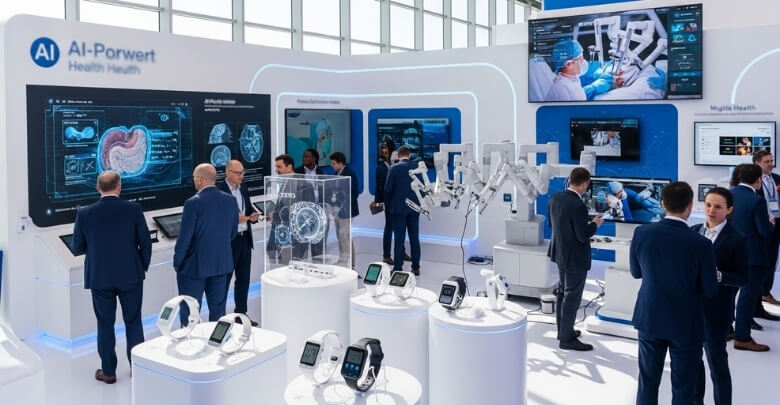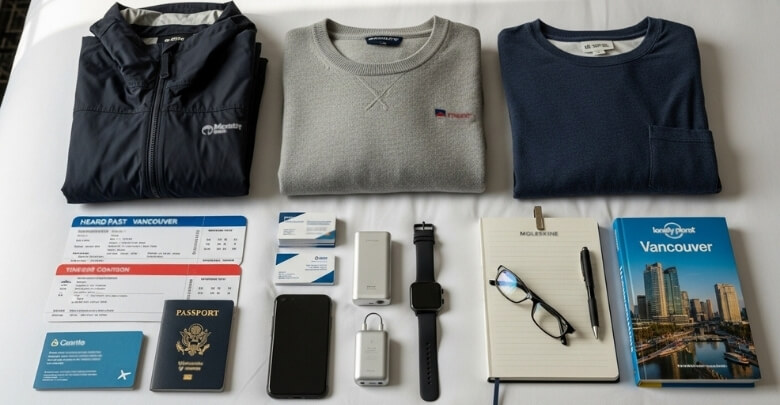Vancouver is a popular place for health science events. Every year, it hosts many conferences where people share research, meet others in the field, and learn about new ideas. These events are useful for students, researchers, and health professionals who want to grow their careers. Attending the right conference can also give you a chance to build strong connections.
Now, you may wonder: how to find a health science conference in Vancouver?
To find a health science conference in Vancouver, check websites like Global Conference Alliance, Eventbrite, and Research Fora. Look at university pages like UBC Health. Search for 2025 events like the 13th Global Conference on Medical and Health Science (GCMHS) and ICMHS. Choose one that matches your interest, and check dates, locations, and if they give visa letters.
Follow the rest of this guide to learn more.
How to Find a Health Science Conference in Vancouver?
The easiest way to find a health science conference in Vancouver is to check trusted sources like university event listings, professional associations, and dedicated conference websites. From the simple steps below, you can find the right conference that matches your goal:

Step 1: Identify Your Goal
- Decide what you want to learn, like medical research, policy, or health tech. Clear goals make search faster.
- List practical needs such as dates, budget, and format. Know if you prefer in-person or hybrid.
- Note travel needs and documents. Check if you’ll require a visa letter.
Step 2: Explore Trusted Platforms
- Visit Global Conference Alliance and Research Fora. These sites list major academic events.
- Use Eventbrite to discover workshops and niche meetings. Search for conferences in Vancouver using filters for date and topic.
- Create alerts or save searches. New events appear often.
Step 3: Review University Sources
- Check UBC Health and related pages. Universities post talks, symposia, and calls for papers.
- Explore departments and research centers. They may host smaller, high-quality events.
- Note campus locations and timing. Some sessions fill up quickly.
Step 4: Check 2025 Highlights and Deadlines
- See the 12th Global Conference on Medical and Health Science (GCMHS) on Oct 24–26, 2025, in Surrey near Vancouver. Registration closes Oct 10, 2025.
- Mark the 13th Global Conference on Medical and Health Science (GCMHS) on Dec 13, 2025, in Vancouver. Expect expert talks, networking, and awards.
- Look at ICMHS on May 30–31, 2025, in Vancouver. It supports paper submissions and DOIs.
Step 5: Compare Fit and Value
- Read each agenda to match your interests. Focus on sessions that help your goals.
- Check speakers, partners, and networking time. Good contacts can boost your career.
- Confirm if they offer visa invitation letters. This matters for international travel.
Step 6: Plan Budget and Travel
- Estimate fees, flights, and lodging. Add costs for meals and local transit.
- Apply early for a visa if needed. Keep all documents ready and updated.
- Book refundable options when possible. Prices can change quickly.
Step 7: Register and Prepare
- Register before deadlines to save money. Late spots may be limited.
- If submitting a paper, follow the guidelines exactly. Many events offer publication support.
- Build a simple schedule for talks and meetings. Bring business cards and a short bio.
What Happens at a Health Science Conference?
Attending a health science conference feels exciting and full of energy. The event brings people from many places together. Everyone comes with ideas, research, and questions they want to share. It becomes a space filled with learning, meeting new people, and fresh discussions. Here is what happens at these conferences:
Opening Sessions
The day usually begins with a big welcome talk. Here, organizers introduce the theme of the conference. They often invite well-known speakers to share inspiring ideas. This sets a positive and curious mood for everyone.
Expert Talks
Health experts give presentations about new research or important health issues. These talks help you understand what is happening in the medical world. Sometimes, they even share early results not seen before. Listeners can ask questions at the end.
Research Presentations
Students and researchers present their projects in smaller groups. They explain what they studied and what they found. This is a chance to learn different perspectives on the same topic. It also helps presenters get useful feedback.
Poster Displays
Posters are put up with research details in a simple visual form. Visitors can walk around and read them. Presenters stand near their posters to explain more. This way, learning becomes more personal and interactive.
Networking Breaks
During breaks, people grab coffee and chat with others. It’s a good time to make friends and new contacts. Many future projects start from these short talks. Building connections can be as valuable as learning from sessions.
Workshops
Workshops are smaller and more hands-on. People get to try new tools, skills, or methods in health science. Trainers guide participants step by step. This makes learning practical and easy to follow.
Awards and Closing
At the end, some conferences give awards for the best papers or research. This encourages young researchers to keep working hard. The closing session often reviews highlights of the event. It leaves everyone motivated to continue learning.
Benefits of Taking Part in a Health Science Conference
Health science conferences bring together curious minds who want to learn, share, and connect. These events give space for growth in both knowledge and personal skills. Here are the main benefits of joining such conferences.
Learn New Research
- Attendees listen to experts explaining discoveries that shape future treatments and healthcare. Each talk highlights practical examples and ideas.
- Researchers present new findings before they appear in journals. This early access helps participants keep ahead of important trends.
Build Connections
- Meeting professionals from different countries opens paths for collaboration. Conversations during breaks often create lasting professional friendships.
- Networking allows people to share stories about their fields. These talks can turn into useful teamwork opportunities later.
Improve Skills
- Workshops teach hands-on methods for research and healthcare practice. Trainers guide participants step by step for clarity.
- Presenting your work builds confidence and clear communication. Explaining ideas to others sharpens your ability to simplify information.
Career Growth
- Employers value candidates who attend conferences. Participation shows commitment to continuous learning and professional development in healthcare.
- Young professionals can meet recruiters or mentors. These meetings sometimes open doors to jobs or higher academic positions.
Gain Recognition
- Presenters receive awards for strong research papers or posters. Recognition in such settings boosts credibility within academic circles.
- Sharing results with large audiences spreads your name in the community. This visibility increases chances for future collaboration offers.
Exchange Ideas
- Group discussions encourage everyone to speak and compare views. Different perspectives bring fresh approaches to similar healthcare problems.
- Asking questions during sessions leads to a deeper understanding. Answers from experts often inspire new thoughts and research directions.
Stay Motivated
- Listening to inspiring talks keeps energy high. Seeing real progress reminds participants why they chose healthcare careers.
- Conferences provide a sense of belonging. Being surrounded by like-minded people strengthens passion and motivation to work harder.
How Networking With Professionals at a Conference Helps Your Medical Career?
Conferences are full of energy, ideas, and inspiring people who want to share their knowledge. Many important conversations happen not only on stage but also during casual chats. These small moments can make a big difference in your medical career. Here are some of the main benefits networking can bring to your medical journey:
Career Growth
Networking often opens doors to new job opportunities. Many roles are shared among professionals before being publicly advertised. Meeting the right people can boost your chances of getting noticed. It also builds long-term visibility in the medical community.
Knowledge Sharing
Conferences are the perfect place to learn directly from peers. Professionals discuss the latest research, new technologies, and clinical methods. These discussions give practical insights that can improve your work. Asking questions helps you learn even more from their experience.
Mentorship and Collaboration
Building strong connections may help you find mentors. Experienced experts can guide your path and offer valuable advice. Collaborations also grow from these bonds, leading to joint projects or studies. This makes teamwork easier and more impactful in the field.
Support System
Meeting colleagues facing similar challenges can be very comforting. They understand the pressures of the medical profession well. Sharing advice and encouragement creates trust and support. Over time, this circle becomes a reliable source of strength and ideas.
Professional Reputation
Active networking improves your image in the medical field. People remember those who contribute, ask questions, and show interest. This recognition increases credibility and trust among peers. It also highlights you as one of the ideal attendees for health science conference in Vancouver and beyond.
What Are the Key Steps for Effective Networking at a Health Science Conference?
Conferences bring together people who are excited about learning, sharing, and connecting with others in their field. They create a space where ideas grow through simple conversations and meaningful interactions. Every handshake or chat can lead to something valuable. Let’s see how you can connect well at the health science conference, which makes the experience even better.
Set Clear Goals
Think about why you are attending the conference. Decide if you want to meet mentors, learn, or find career leads. Having a clear goal makes networking easier. It also helps you focus on what matters most.
Prepare Introductions
Practice a short and simple introduction about yourself. Mention your name, field, and what you study or work on. Keep it natural and easy to understand. This helps you start conversations without feeling nervous.
Attend Key Sessions
Go to talks and workshops that match your interests. These events put you in touch with like-minded people. Listen carefully to speakers and note questions. Talking about these later can start good discussions.
Join Discussions
Do not be shy about asking questions during Q&A sessions. Your curiosity can help others remember you. Talking in group settings shows interest and confidence. It also helps you connect with both peers and experts.
Use Break Times
Coffee breaks and lunch breaks are the best times to talk with others. Walk up to someone and start a simple chat. Asking about their research is always a good start. Small talks often grow into valuable contacts.
Exchange Contacts
Always carry a few business cards or keep your contact details ready. After a nice chat, share your information. This makes it easier to stay in touch later. Following up becomes smoother when contacts are exchanged properly.
Be a Good Listener
Pay close attention when others talk about their work. People appreciate listeners who show real interest. Ask small questions to keep the conversation going. Listening well leaves a lasting impression.
Attend Social Events
Most conferences have dinners or networking evenings. These events are more relaxed and friendly. Use them to connect in a casual way. Relationships built here often last longer.
Follow Up Later
Send a short email or message to people you met. Remind them of your conversation politely. Following up keeps the connection alive. It shows you truly value the new bond.
Stay Consistent
Networking is not just for one event. Keep attending conferences whenever possible. Each time, your circle of contacts will grow. Strong networks build slowly but bring long-term benefits.
What Types of New Technologies Are Showcased at a Health Science Conference?
Health science conferences bring together exciting ideas and fresh tools that are shaping the future of healthcare. These events create a space where professionals share and explore the latest technologies. Every year, the tools get smarter, faster, and more helpful for patients. Here are the types of new technologies showcased at the conference:
Artificial Intelligence
AI helps doctors read scans and test results more accurately. It can also suggest treatment plans for patients. By analyzing patterns, it predicts health risks early. This technology saves time and supports better decision-making.
Robotics
Robots are now being used in surgeries with high precision. They help doctors perform tasks with smaller cuts and faster recovery. Rehabilitation robots also guide patients during therapy. These tools improve safety and outcomes in many treatments.
Wearable Devices
Smartwatches and health trackers collect data on heart rate, sleep, and exercise. Hospitals use advanced wearable devices to monitor patients in real time. Connected systems allow doctors to check patient progress from a distance. This technology makes healthcare more convenient.
Blockchain
Blockchain secures patient records and prevents data leaks. It allows only authorized people to access medical files safely. By protecting privacy, it builds trust in digital healthcare systems. This makes information sharing between hospitals easier and safer.
Digital Health
Telemedicine platforms allow patients to consult doctors online. Mobile health apps remind people to take medicines on time. Digital therapies help manage conditions without needing constant hospital visits. These tools make healthcare accessible to more people.
Genomics
Genomic tools study a person’s DNA to plan treatments. Doctors can choose medicines that work best for each patient. This approach reduces side effects and improves recovery. It shows how medicine is becoming more personalized.
Data Analytics
Big data tools collect information from millions of patients. Doctors use this data to predict trends in health problems. It helps them prepare better treatments and policies. This is important for improving overall community health.
Infrastructure Tools
Hospitals are now using advanced systems to manage staff and patients. These tools reduce errors and improve safety. They also help with faster check-ins and smoother services. Such updates show the importance of health science conferences in guiding better healthcare solutions.
How Should You Prepare Yourself for a Conference in Vancouver?
Getting ready for a conference in Vancouver takes more than just booking a ticket. From planning your schedule to packing smart, the right preparation ensures you can focus on learning and networking once you arrive. Here are some practical steps to help you feel prepared and confident.
Plan Early
- Write down the conference dates on your calendar. This helps you remember and keeps your time clear.
- Check the topics of the event before you go. Knowing the theme helps you stay focused.
- Book your flights and hotel early. Prices go up if you wait until the last moment.
Organize Documents
- Keep your passport, visa, and ID in one folder. This saves time when you travel.
- Print your conference ticket or registration slip. Showing it will make entry faster.
- Pack research notes or papers you need. Having them ready avoids stress later.
Pack Smart
- Take both formal and casual clothes. This way, you are ready for every part of the event.
- Carry chargers and a power bank. Your devices should not die during important sessions.
- Bring an umbrella or a light jacket. Vancouver’s weather can change suddenly.
Build Knowledge
- Read about the main speakers. This gives you ideas for questions you can ask.
- Look at new health science articles online. It keeps you updated for smart talks with others.
- Practice a short introduction about yourself. It helps people remember you after meeting.
Network Wisely
- Bring a few business cards. Sharing them makes it easy to connect again later.
- Be friendly and polite during breaks. People will want to talk with you more.
- Join small group chats. These talks often build good connections.
Manage Money
- Plan a budget for travel, food, and tickets. This keeps you from overspending.
- Carry an extra card or some cash. It helps when there are sudden costs.
- Track your spending each day. Writing it down helps you stay on budget.
Stay Healthy
- Drink water often during the day. This keeps you fresh during long events.
- Eat simple and healthy food. Good meals give you steady energy.
- Take short walks during breaks. Moving around helps you feel active and relaxed.
What Should You Consider Bringing to a Health Science Conference in Vancouver?
Conferences are exciting events filled with learning, meeting new people, and sharing ideas with experts in the field. They give you the chance to explore the latest research and tools. Packing the right things makes your experience smooth. Below are the essential things you should consider bringing to the conferences:
Essential Documents
Bring your passport, ID, and visa if needed. Keep them in a safe folder for easy access. Always carry your conference ticket or registration proof. Without it, you might face delays at the entry desk.
Comfortable Clothing
Pack formal outfits for sessions and casual wear for breaks. Vancouver’s weather can change, so add a jacket. Comfortable shoes are important for walking around. Dressing right helps you feel relaxed and confident.
Tech Items
Carry your laptop or tablet for notes and research. Bring chargers and a power bank to stay connected. Having headphones can help during travel or breaks. These items keep you prepared throughout the event.
Stationery Supplies
Take a notebook and pens for quick notes. Writing things down makes it easier to remember later. Sticky notes are useful for marking important points. Simple tools can make your learning more effective.
Personal Care
Pack basic toiletries like a toothbrush, toothpaste, and deodorant. A small hand sanitizer can also be helpful. Carrying a water bottle keeps you fresh during long sessions. Personal care items make you feel comfortable.
Networking Tools
Bring business cards with your details printed. Handing them out helps others remember you. Keep a pen handy to jot down contacts. Good preparation makes networking easier and smoother.
Weather Gear
Vancouver weather is often unpredictable. Carry an umbrella in case of sudden rain. A light scarf or sweater can be useful in cool evenings. Staying prepared keeps you comfortable outdoors.
FAQs About Finding a Health Science Conference in Vancouver
Attending a health science conference in Vancouver can be exciting and helpful for students, researchers, and professionals. Many people wonder how to search, register, and prepare for these events. Here are some common questions with clear answers to guide you.
What Are the Best Months to Look for Conferences in Vancouver?
The best months are spring and fall because many conferences take place during these times. Events often align with academic calendars and research schedules. May, October, and November usually have several major conferences, making them good months for opportunities.
How Do I Know If a Conference Is Reputable?
Check the organizer’s website and past events. Trusted groups like Global Conference Alliance and Research Fora host credible conferences. Look at speaker lists, past reviews, and partnerships. Reputable events also provide clear details on publications and research opportunities.
Can I Attend a Conference Without Presenting Research?
Yes, you can attend as a listener. Many people join conferences only to learn and network with others. Attending without presenting still gives access to expert sessions, workshops, and discussions. It’s a great way to build experience.
Where Can Students Find Affordable Conference Options?
Students can look for discounted tickets on organizer websites or platforms like Eventbrite. Universities sometimes share free or low-cost events for students. Scholarships and grants may also be available. Always check early, as discounts often run out quickly.
Do Vancouver Conferences Offer Online Participation?
Many conferences now provide hybrid formats, allowing both in-person and online attendance. Online options make it easier for international participants. Sessions are streamed live, and recordings may be available later. This flexibility helps more people join and learn.
How Far in Advance Should I Register?
It’s best to register at least two to three months before the event. Early registration often comes with discounted rates and better hotel options. Waiting too long risks missing deadlines, higher prices, or limited availability for tickets.
Are There Specific Conferences Focused Only on Students?
Yes, some conferences are tailored for student researchers. These events encourage paper submissions, poster presentations, and early-stage research sharing. They also provide mentorship opportunities. Student-focused events help young researchers learn, practice, and grow in a supportive environment.
What Are Common Mistakes When Searching for Conferences?
One mistake is not checking the organizer’s credibility. Others include missing deadlines, ignoring visa needs, or forgetting to compare topics. Relying only on random search results without trusted sources often leads to scams or irrelevant conferences.
Do Conferences in Vancouver Provide Certificates?
Yes, most recognized conferences provide participation certificates. These certificates are useful for resumes, university applications, and professional profiles. Presenters often receive additional certificates. Always confirm details on the organizer’s website before registering to avoid missing important benefits.
Can International Participants Get Visa Help From Conferences?
Yes, many conferences provide official invitation letters to support visa applications. This letter is given after you register and pay. Always check the event details to confirm if they provide visa assistance, especially for international travelers.
Closing Remarks
Going to a health science conference in Vancouver can help you learn and grow in your field. You can meet new people, hear about new research, and find new chances for your future. Knowing how to find a health science conference in Vancouver will make things easier for you.
Use trusted websites, check university pages, and pick a conference that matches your needs. Don’t forget to plan early, pack well, and stay ready. With simple steps, you can enjoy the event and make it worth your time. A good conference can truly make a big difference.









